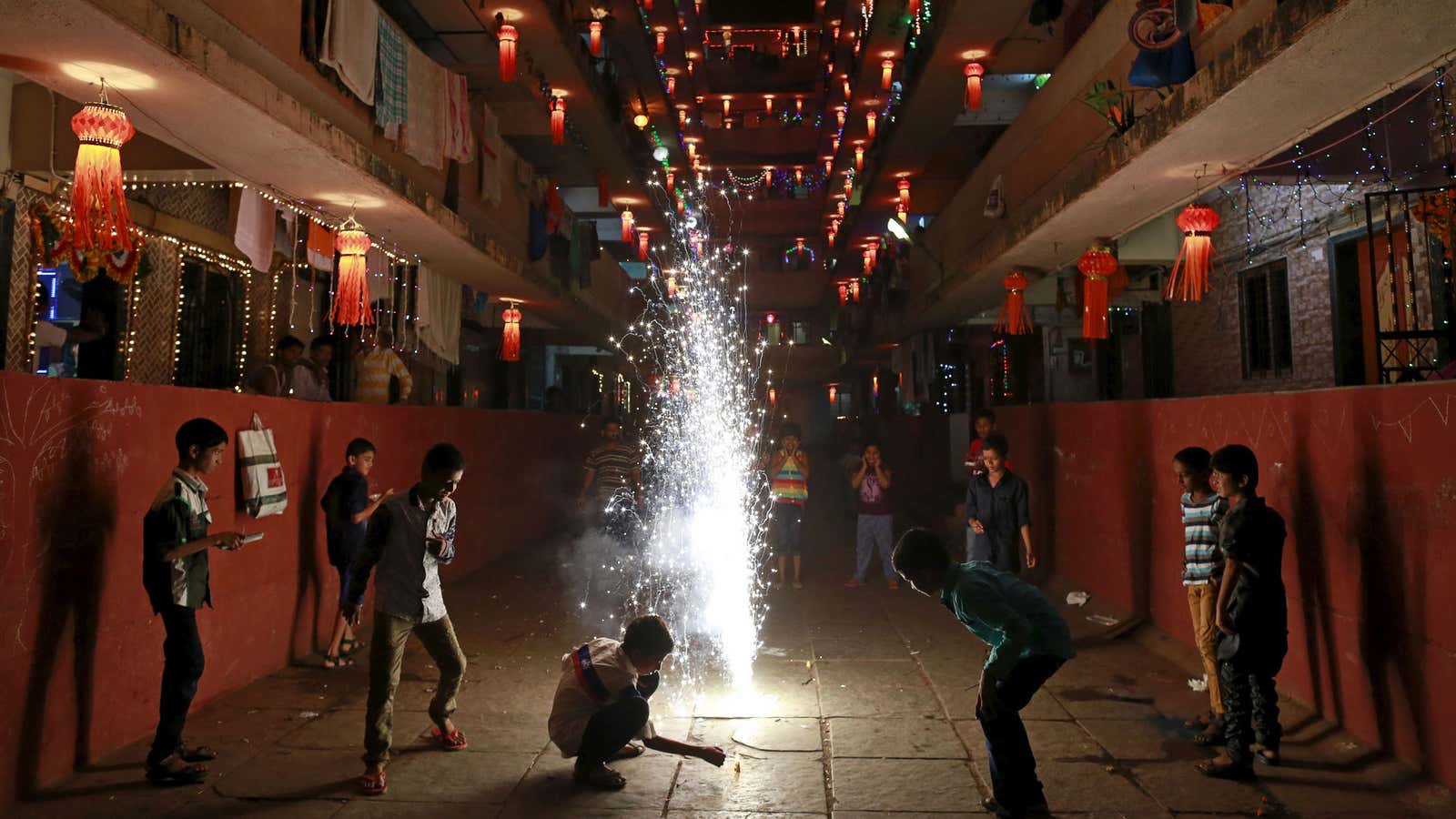Days ahead of Diwali, the Hindu festival of lights, India’s supreme court has refused a blanket ban on firecrackers. However, it has severely curbed their use.
The apex court today (Oct. 23) agreed to the conditional sale of crackers—with reduced emissions and noise—even as the country grapples with worsening pollution woes as winter approaches. It, however, barred online sales and restricted the time of their use between 8 pm and 10 pm.
In 2017, the court had temporarily banned the sale of crackers ahead of Diwali in Delhi-NCR in a bid to see the move’s impact on lowering pollution levels.
The verdict comes amidst peak festive season, which is also the peak period for pollution—this is the time of the year when northern India witnesses the annual phenomenon of vehicular, industrial, and farm emissions mixing with the winter fog. This toxic smog then envelopes vast areas across the Gangetic plain, posing a massive health hazard to millions of residents.
India’s capital city of New Delhi and its neighbouring areas are among the worst-affected every year. In 2016, a major pollution-scare had forced schools and offices to shut down in the region.
The 2017 temporary ban on firecrackers was then criticised by small traders and vendors who heavily depend on festive sales.
India fares poorly in air-quality rankings. Fourteen of the world’s 15 most polluted cities, in terms of 2.5 particulate matter concentration, are in India, according to a 2018 report by the World Health Organization. In 2015, 2.5 million Indians reportedly died of ailments caused by air pollution. It is estimated that such pollution reduces the average lifespan of Indians by 1.5 years.
The SC’s order will hopefully help keep the air quality in check this year.
